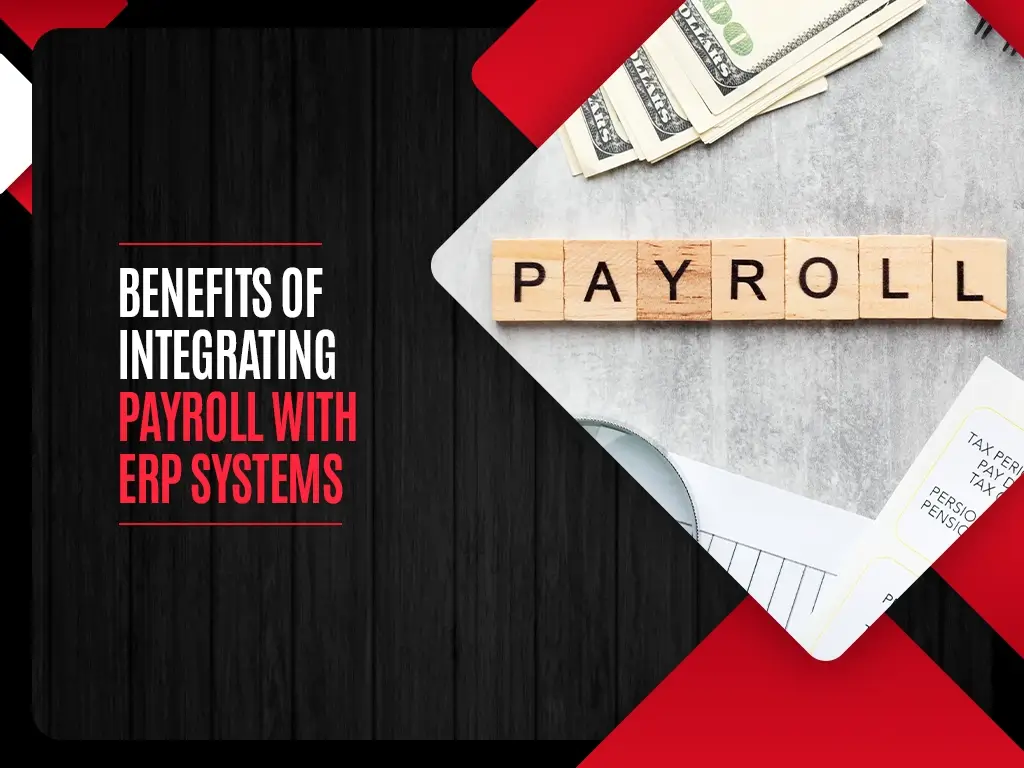Benefits of Integrating Payroll with ERP Systems

Payroll management can be a daunting task for modern businesses, especially those still reliant on manual processes. As companies grow and digitalization becomes more prevalent, the inefficiencies and errors associated with manual payroll methods become increasingly glaring. These outdated workflows consume valuable time and heighten the risk of mistakes that can lead to employee dissatisfaction and compliance issues. Hence, it has become necessary for businesses in any industry to embrace digital solutions for greater operational efficiency and sustained competitiveness.
Enterprise Resource Planning (ERP) systems are comprehensive business management solutions that integrate a company’s various functions into a single, unified platform. These systems streamline operations, enhance data accuracy, and improve overall productivity. When it comes to payroll, ERP systems like the popular SAP Business One can revolutionize the way companies handle employee compensation by automating processes and centralizing data. Payroll-ERP integration can thus pave the way for more efficient and accurate payroll management, thereby leading to significant operational improvements.
Read on for some key benefits of integrating payroll with an ERP system and a detailed look at how this integration can transform payroll management for better business performance:
Accurate and Timely Payroll Processing
Imagine a payroll process that runs seamlessly every pay period, free from the usual delays and errors. Payroll-ERP integration makes this a reality by automating data collection from various sources such as time-tracking tools and attendance systems. This eliminates the need for manual data entry and ensures that all records are consistently accurate.
Under such systems, employees can be assured that they’ll always be paid correctly and on time, which in turn does wonders for their job satisfaction and their trust in their employer. Lastly, more streamlined processing also frees up more time for HR and finance departments to spend on strategic tasks, ultimately empowering them to do more value-adding work.
Understanding the different types of ERP systems is essential when considering integration options, as each type offers unique features and capabilities that can influence the effectiveness of your payroll processes.
Seamless Benefits Administration
Handling employee benefits can often feel like navigating a maze, with frequent changes in benefits selections and employee statuses. An ERP-integrated payroll system, in contrast, can automatically update payroll calculations based on any changes in employee benefits. Whether it’s health insurance, retirement plans, or other perks, the system reflects all adjustments accurately in the payroll and ensures that employees always receive their benefits without any hitches.
Automated Tax Calculations and Filings
Tax season often brings a wave of stress for businesses, with the risk of penalties looming large over any errors or delays in filings. Businesses using an integrated payroll system can automate their tax calculations and filings to guarantee compliance with state and local tax laws. This approach not only minimizes the risk of costly errors but also ensures that tax filings are completed on time, every time. With a reliable way to streamline these complex processes in hand, businesses can thus avoid penalties and focus on growth.
Efficient Handling of Complex Pay Structures
Payroll isn’t always straightforward, as it often involves managing overtime, bonuses, commissions, and other intricate pay structures. An ERP-integrated payroll system excels in handling these complexities. It automatically calculates various components of employee compensation to produce accurate paychecks every time. This capability is especially beneficial for companies with diverse compensation models, as it makes sure that all employees are paid correctly according to their specific arrangements.
Easier Leave and Absence Management
Tracking employee leave and managing absences can be a cumbersome task and often leads to payroll discrepancies if not done correctly. Integrated payroll systems connect directly with HR modules and seamlessly track leaves and absences on their own. When an employee takes vacation or sick leave, the system automatically adjusts the payroll accordingly. As a result, payroll always reflects the actual time worked and businesses avoid overpayments or underpayments.
Direct Deposit and Payment Flexibility
In today’s fast-paced world, employees expect timely and convenient access to their wages. An ERP-integrated payroll system supports direct deposit and other flexible payment methods that businesses can leverage to send employees their paychecks promptly. The system can accommodate various payment preferences, whether employees prefer to be paid bi-weekly, monthly, or through different banking institutions. Businesses that employ such measures are likely to enjoy higher rates of employee job satisfaction—and by extension, higher retention rates over time.
Audit Trail and Historical Data Access
Maintaining a comprehensive audit trail is crucial for transparency and accountability in payroll processes. Integrated payroll systems automatically generate and maintain detailed records of all payroll transactions. This documentation is invaluable during audits, which will typically be looking for clear evidence of all payroll activities. Additionally, having easy access to historical payroll data allows businesses to analyze trends, resolve discrepancies, and make informed decisions. Full transparency and consistent, real-time data access both support compliance and improve overall payroll management.
In sum, the future of payroll management lies in leveraging technology to simplify complex tasks and ensure seamless operations. As the above sections have demonstrated, integrating payroll with an ERP system like SAP Business One offers numerous benefits that enhance efficiency, accuracy, and overall business performance. It’s imperative for businesses to embrace these digital solutions to streamline their payroll processes and unlock more opportunities for strategic growth.

